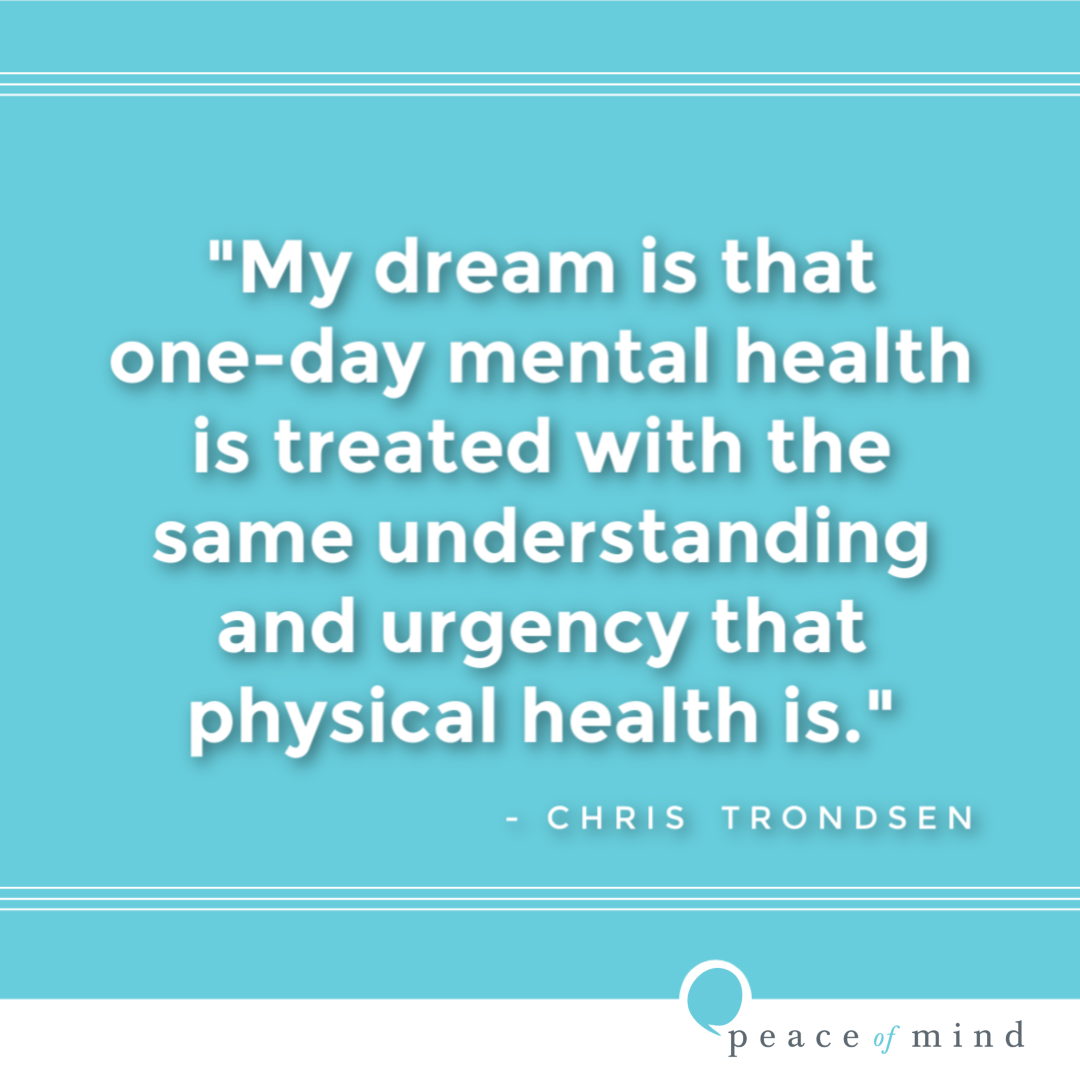
A Personal Journey to Recovery and Effective Treatment with Chris Trondsen
Chris Trondsen spent an afternoon with us sharing his experience living with obsessive-compulsive disorder (OCD), as well as body dysmorphic disorder (BDD), depression and suicide. He shares his inspirational story about finding effective care and rebuilding his life after treatment. We asked Chris to answer a few more questions that were unanswered during the live webinar.
1) What brain health advice or tips can you give to young adults?
“I’m assuming they are asking about general brain health? I would say
that it is hard as a young adult because there is so much pressure to
drink, do drugs, be constantly on your phone, play video games, etc.
Your brain is still developing at this time and many substances, such as
drugs and alcohol can impact your mental health. I made the mistake of
self-medicating with alcohol, drugs, and nicotine before I knew there
was treatment. My suggestion would be to avoid these substances and make
sure you are doing healthy things to cope–such as spending time with a
support system and engaging in activating behaviors (such as exercise or
journaling) that are good for mental and brain health.”
2) How do you reduce avoidance behaviors?
“First off recognize that you do not have to give them up all at once.
That can be overwhelming and actually turn people off of treatment.
Start by selecting the avoidance behavior that is easiest to give up and
break that down. For instance, if you leave the living room for the
night because your sister triggers you and is in the room, try instead
leaving the room for only 30 minutes and then coming back in. Then try
and staying in the room but being far away from her. Eventually, sit near
her and even interact with her. You can progressively reduce the
avoidance behavior instead of trying and giving it up cold turkey.
Recognize that avoidance something is just reinforcing whatever you are
avoiding is “bad” and we are trying to learn that these things are not
dangerous. Lastly, come up with healthy coping strategies. I really
liked exercise and mindfulness meditation. You teach yourself to cope
with anxiety in healthy ways instead of through avoidance.”
3) If your loved one is going through a difficult time, what is the
best way to show support?
“Saying things such as “stop it,” or “we always have to make adjustments
cause of you,” and “this again?” are things NOT to do. It is important
to validate your loved one’s experience. They are struggling big time
and just want to know that you understand and care. Do not let it cross
a line to reassurance and enabling but support their overall experience
and struggle. Also, spend time with them and do fun things that have
nothing to do with OCD and treatment. You don’t even have to mention it.
That way they know you are there for them and you have a relationship
outside of OCD. I just wanted my mom and sister to be there with me at
times since I felt so alone but I never expected them to fix it for me.
That was my therapists’ job. Also, supporting them to go and stay up
with treatment is important.”
4) What stigma have you faced and why is it important to speak out?
“When I first opened up to some people about OCD, they told me not to
tell others because I would be judged and people may think I was weird.
I had people around me downplay my struggle and a lot of people who just
didn’t understand–and didn’t try. I was working as an entertainment
news reporter and people in that field couldn’t care less about what I
was struggling with and would make off and odd comments anytime I posted
about the advocacy I was doing. I will say that lately, it has been a lot
better. I still don’t think people treat OCD with the understanding and
sensitivity it deserves, but people are treating mental health a lot
more seriously. Especially, younger aged people. This gives me hope. It
is important to speak out about it to keep the conversation going. My
dream is that one-day mental health is treated with the same
understanding and urgency that physical health is.”
Again, we want to say a special thank you for Chris coming to speak with us and for all the work he is doing for the OCD Community. If you are ever feeling suicidal or unsafe please go to your local emergency room, call 911 or call the suicide prevention hotline at 800-273-8255.
